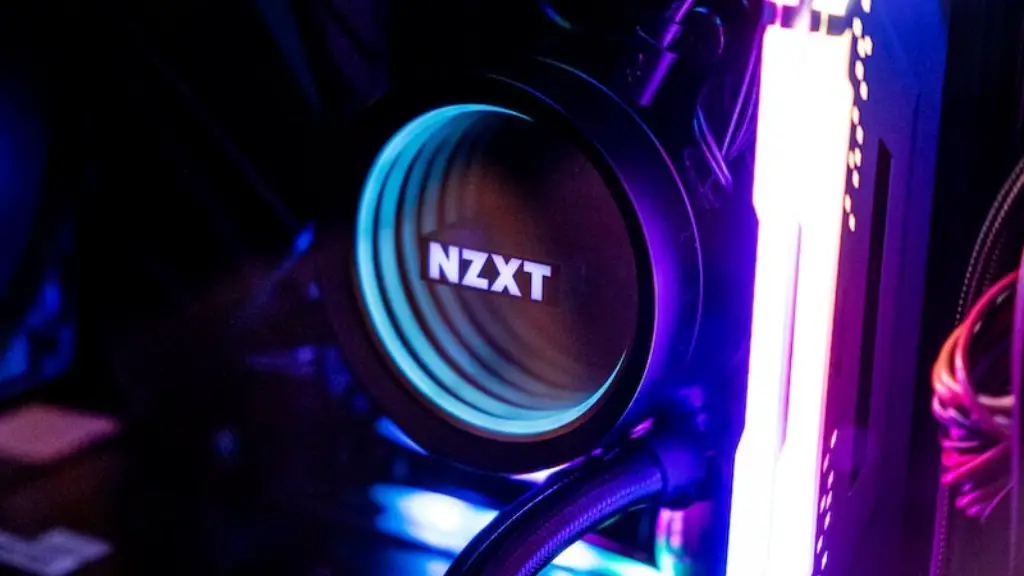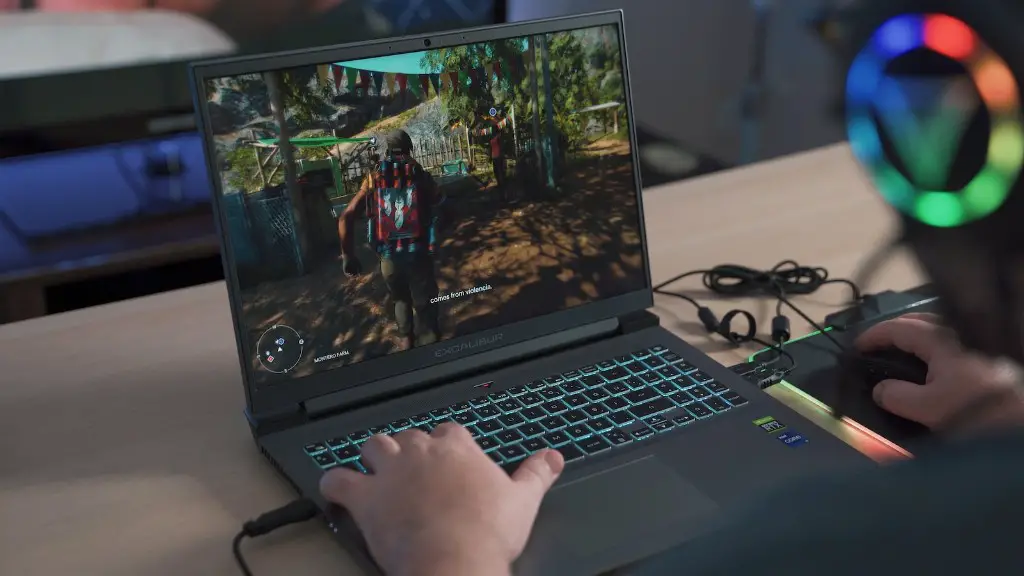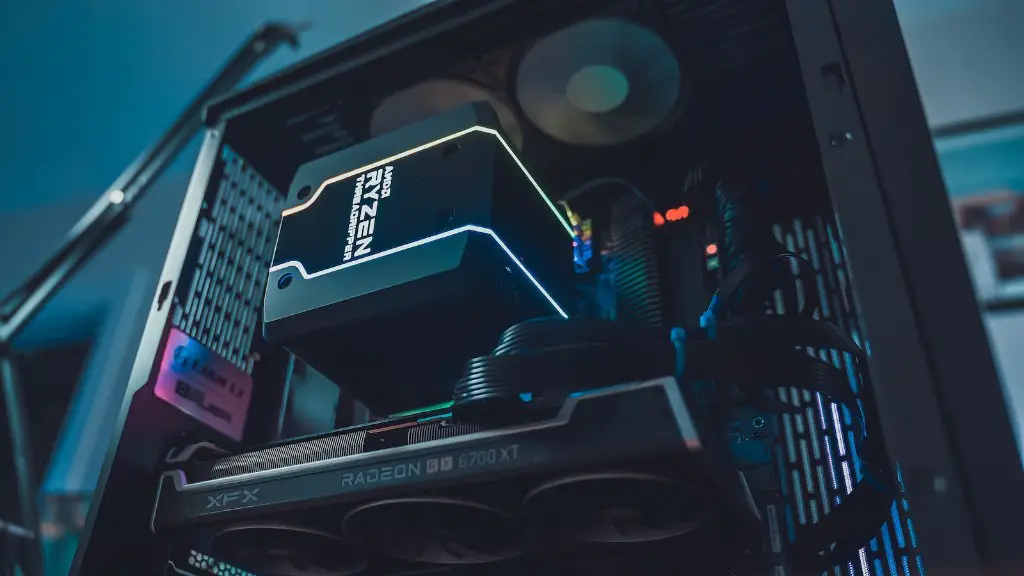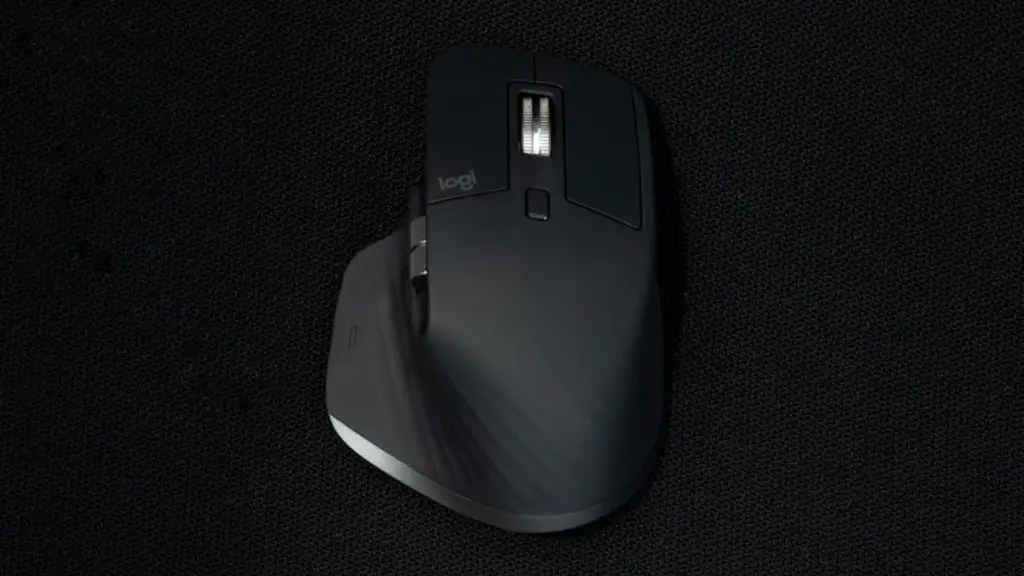Building a good gaming PC is an important task and requires some prior research. The amount required depends on the desired level of gaming capability and the hardware you choose. A typical budget for a lower-end gaming PC, which would offer decent gaming performance and allow for some upgrades, would be around $700-$800. For a higher-end gaming PC, with top-of-the-line hardware, it can cost up to $2,500-$3,500.
The core components that make up a gaming PC are the processor (CPU), graphics card (GPU), motherboard, RAM, storage, power supply, and case. Depending on the hardware you choose and where you shop, the cost can vary significantly. Professional grade hardware tends to be more expensive but usually delivers a significant boost in performance.
When purchasing components, it is important that they work together and are compatible. Intel and AMD are the two major CPU makers, and Nvidia and AMD are the two major GPU makers. The motherboard dictates which type and size of CPU and GPU is compatible with the system. RAM is usually the same across the board, but can vary in frequency, with faster RAM boosting gaming performance. Storage comes in the form of solid-state or hard drives, and the power supply must be able to provide enough energy to the system.
An additional factor to consider when building a gaming PC is the type of games you want to play. Not all games are created equal, some require more powerful hardware than others. If you purchase lower-end hardware, you may still be able to play the game, but it won’t be in “ultra” mode and may not look as good as you had hoped. If you’re looking to play in 4K resolution with high frame rates, you’ll need a much higher-end system.
Finally, gaming PCs need to maintain a balance of performance and budget. Unless you’re willing to break the bank, it is best to purchase components that give you the best bang for the buck. There are lots of options for gamers of all budget levels, and with a little bit of research, you can build a great gaming PC.
Graphics Card
The graphics card (GPU) is probably the most important component for a gaming PC. The GPU is responsible for rendering the graphics in a game and having a powerful GPU can significantly improve gaming performance. GPUs can range in price from $200-$1,500 depending on the capable maximum resolution and the type of memory used. GPUs generally use GDDR5 or GDDR6, with the latter being a bit faster but also more expensive.
Nvidia and AMD are the two major makers of gaming GPUs, and each company has their own lineup. GPUs with lower-end power draw are best for gaming in 1080p resolution, while GPUs with higher power requirements are better suited for gaming in 1440p and 4K resolutions. Gamers should also consider the type of games they will be playing and adjust their GPU choice accordingly. For example, more GPU power may be needed for VR gaming and high frame rate gaming.
When it comes to GPUs, it is also important to take into account the type of monitor you will be using. For example, if you are using a crispy 4K monitor, you will need a more powerful GPU to take advantage of the high resolution. On the other hand, if you are using a 1080p monitor, then a lower-end GPU should be sufficient.
Finally, when shopping for GPUs, gamers should keep an eye on prices as they can vary significantly from one store to the next. Also, some retailers may be offering discounts or bundles, so it may be worth investigating those too.
Memory & Storage
Memory, also known as RAM, and storage are two other important components for any gaming PC. Memory determines how quickly the computer processes information and is usually sold as DDR4 SDRAM. Typical memory capacity for gaming PC’s ranges from 8GB to 64GB, with 16GB and 32GB being primary choices for serious gamers. When it comes to memory, speed is also an important factor and memory that runs at higher frequencies will improve gaming performance.
Storage comes in two forms, Solid-State and Hard Drive. Solid-State Drives, also known as SSDs, are the faster option and deliver almost instant boot and loading times. On the other hand, Hard Drives are much larger in storage capacity and are more cost-effective. For gaming purposes, most gamers will opt for a combination of both.
When looking for a storage solution, gamers should keep in mind how much storage they need for their games and other applications. Some games can take up over 50GB of space, and if you plan on playing multiple games then you should plan on having the appropriate amount of space.
Finally, when shopping for memory or storage, gamers should pay attention to prices, as they can vary significantly from one store to the next. Prices can also vary based on the type and speed of the memory or storage, so it is important to shop around before making a purchase.
Power Supply
The power supply, sometimes referred to as a PSU, is an important component to consider when building a gaming PC. Every component in your gaming PC requires power and the Power Supply is what determines how much power can be delivered. It is important to ensure the power supply can deliver enough wattage for the system, and it must also have the correct connection type for the hardware in the system.
When it comes to selecting a Power Supply for your gaming PC, it is important to select one with sufficient wattage for all the components. Picking a power supply that is too weak may lead to system instability, while choosing a power supply that is too powerful may be a waste of money. Most gaming PCs do not require more than a 650W power supply, but it is best to consult with the manufacturer to determine wattage requirements.
In addition, gamers should also make sure they select a Power Supply with the correct connection type. The most common type is ATX, but other types such as SFX and BTX are available. If you choose the wrong type, the Power Supply may not be able to deliver enough power to your system.
Finally, price is also an important factor when selecting a Power Supply. High-end models are often quite expensive, and since the Power Supply is an important component, it is important to not skimp on this component. However, there are also budget models available, and with a bit of research, it is possible to find a good quality budget Power Supply.
Case & Cooling
The case and cooling system are the final components to consider when building a gaming PC. A good quality case ensures that all components fit securely and that airflow is maximized to prevent overheating. The type of cooling system also plays an important role in maintaining optimal temperature inside the case. Good cooling systems include heat sinks and fans, and liquid cooling can also be used for more intensive systems.
When looking for a case, players should keep in mind their budget, desired size, and the type of cooling system they plan to use. There are many options available, ranging from small and compact to full-tower cases. Most cases come with fans pre-installed, but more powerful fans can be purchased if desired.
When it comes to cooling, there are several types of cooling systems to choose from. Air cooling is the most common and consists of heat sinks and fans to ensure the system stays cool. Liquid cooling is also popular, although more expensive, and consists of a cooling radiator with a pump and fan to ensure the system does not overheat. Finally, there are also pre-built cooling systems that integrate both air and liquid cooling for the ultimate cooling experience.
Finally, gamers should also consider the noise levels associated with different cooling systems. Some systems are designed to run silently, while others may be quite loud. Be sure to research the cooling system before making a purchase to ensure it meets your needs.
Peripherals
In addition to the core components, gamers should also consider the peripherals they will be using with their gaming PC. This includes the keyboard, mouse, headset, and monitors. Depending on the type of game, certain peripherals may be more important than others. For example, a gaming mouse and keyboard may be more important for first-person shooter games, while a good headset may be more important for online multiplayer games.
When selecting a keyboard, it is important to consider the type of switches and features. For gaming, gamers may want to opt for a mechanical keyboard with tactile switches as these are much more responsive than membrane keyboards. In addition, some keyboards offer features such as programmable macros and back-lighting, which can be useful for gaming.
When it comes to mice, gamers should pay attention to the type of sensor and connectivity, such as wired or wireless. Most gaming mice use an optical sensor, which is more accurate, but there are also laser mice available that can be more precise. In addition, wired mice generally deliver better performance, while wireless mice are better for portability.
Headsets, monitors, and other peripherals also need to be taken into consideration when building a gaming PC. Some gamers may opt for a single large monitor while others may want to set up a multi-monitor setup. It is also important to consider the type of headset, as some offer 7.1 virtual surround sound which can significantly improve the gaming experience.
Finally, gamers should also take into account their budget, as peripherals can also be expensive. However, with a bit of research, it is possible to get decent gaming peripherals without breaking the bank.




